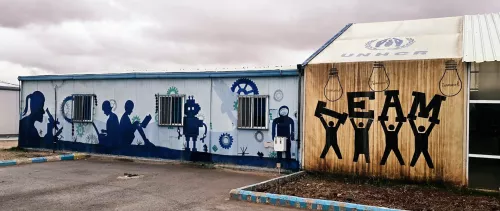
By ITU News
Broadband connectivity brings great promise to the world’s poor and underserved populations — as it allows wide access to services in areas as diverse as finance, commerce, education, health, and governance, which can enhance well-being, create new opportunities for innovation and employment, and boost economic growth.
But how can we ensure that the advances of the 21st century do not bypass the 3.8 billion people, often the poorest of the poor, who do not have broadband digital connectivity?
The Broadband Commission for Sustainable Development 2018 Spring Meeting held in Kigali, Rwanda, brought together 34 leaders from government, industry, international organizations and academia, to address that very question.
“Rwanda is a perfect example of what’s possible when dedicated leadership, careful policy management, and an active private sector come together to build a digital future”–Houlin Zhao, ITU Secretary General
Established in 2010 as a top-level advocacy body promoting broadband as an accelerator of global development, the United Nations’ Broadband Commission for Sustainable Development recently set seven targets for 2025 to “Connect the Other Half” of the world’s population. These targets aim to expand broadband infrastructure to support the achievement of the Sustainable Development Goals (SDGs).
RELATED: UN Broadband Commission calls for fresh efforts to close digital divide
On Sunday, 6 May, Commissioners took part in onsite sessions of four Broadband Commission Working Groups: Vulnerable Countries, Epidemic Preparedness, Digital Entrepreneurship and Digital Health.
The Working Group on Vulnerable Countries discussed and identified recommendations to support increased access to broadband services in these countries; the Working Group on Digital Health addressed ways governments can use digital health to address non communicable diseases to improve Universal Health Care, and the Working Group on Epidemic Preparedness identified best practices for epidemic preparedness. This was followed on Monday, 7 May, with the full-day annual Spring Meeting of the Commission.
During the sessions, President Paul Kagame highlighted Africa’s need for broadband infrastructure as well as accessible and affordable internet access.
“Africa’s economic transformation requires broadband infrastructure with an emphasis on both access and affordability,” he said. “The reality is that all other digital services whether in commerce or education or healthcare run on top of broadband. Africa’s size, geography and settlement patterns mean that we must rely on a variety of different technologies to deliver broadband including satellite, fibre optic and mobile. It is up to us to lead the way in driving innovation both in policy and business models in order to speed up the provision of broadband where it has been slowest to reach.”
ITU Secretary-General Houlin Zhao also stressed the need to bridge the digital divide.
“Broadband is driving today’s digital transformation, opening new frontiers and new possibilities across the world.…,” said Mr. Zhao. “As coverage and speeds are increasing and more people than ever are accessing advanced digital services, we are faced with the challenge of finding the funds to bridge the digital divide. 3.8 billion people are unconnected, many of them right here in Africa.”
RELATED: State of Broadband 2017 report issues 5 key recommendations to spur development
Mats Granryd, Director General, GSMA, highlighted the importance of public-private partnerships to bridge the global digital gap. “As we will soon see the first 5G networks rolling out,” he said, “it is more important than ever that governments and industry work together to ensure that all citizens benefit from this new era of hyper-connectivity.”
Houlin Zhao praised the host country as an excellent example of leadership and collaboration. “Rwanda is a perfect example of what’s possible when dedicated leadership, careful policy management, and an active private sector come together to build a digital future,” he said.
The Broadband Commission comes on the eve of the Transform Africa Summit, a high level platform bringing together over 4,000 participants to discuss the disruptive but also the enabling and strategic role of ICT for the rapid transformation of Africa.


